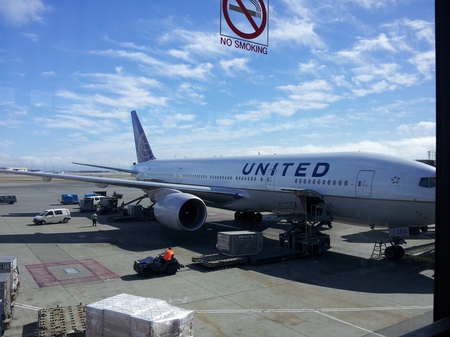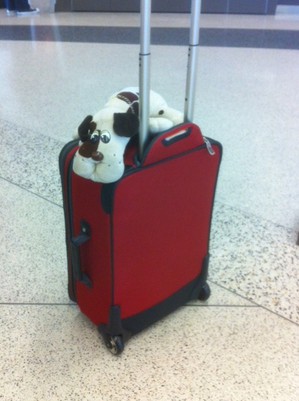Today at lunch, I sat in on an optional session exploring Jewish feminism. It seems that the original generation of feminists (the First Wave?) thinks that women today actively oppose the "feminist" label, or identify as "stiletto feminists." (Did we just get that term from West Wing?)
From my perspective, working at Camp Tawonga and the Midrasha teen school, I see feminism on a daily basis, but in a new incarnation. My friends and I are proud to identify as feminists, but women face different challenges today than they did in the Sixties and Seventies. Women have the vote, and they can work at (almost) any job, and they face far less explicit challenges than they did 40 years ago.
Still, today's women, and especially today's teenage girls, face a male-dominated culture of expectations and double standards. They are bombarded by a fairly consistent set of media images telling them what to wear, how to carry themselves, and how they're supposed to act. This, I suppose, is the new liberation that women need - they must have the freedom to interact with the world in a genuine and positive manner, free from the negative and constant influences of today's popular media.
From a Jewish perspective, this problem is not nearly as visible. At least among Jewish organizations (in the Bay Area), religious observance has become consistently egalitarian. Women have not only the freedom to participate and lead, but the expectation that women are consistently in charge of Jewish organizations. This is in marked contrast with the secular world, where women still face obstacles to their advancement, and too few women are running companies and organizations.
This is the value of Jewish summer camps. Mine, in particular. We consciously choose our language to empower our female campers (saying "you all" instead of "you guys"), and we constantly challenge assumptions that "that's a boys' sport," or "girls aren't strong enough to lift that." One of my favorite lines is "I'm not holding the door for you because you're a girl - I'm just doing it to be nice."
In fact, our female empowerment programs have come so far (a Red Tent to discuss adolescence, programs on women's role in society) that we've become developing "male empowerment" as well. It looks different, frequently focusing on competition and aggression, and the Spectrum of Masculinity, but it's a welcome part of Camp Tawonga's thoughtful and intentional culture, where all of our interactions, decisions, and programs are carefully measured to benefit the entire community.
I realized at today's lunch conversation, with educators from around that country, that the Bay Area may be unique in this regard. They reported that the young people in their communities shy away from the "feminist" label, and that they no longer see the importance of fighting for women's rights. How fortunate I am to live in an area where I've been brought up to recognize and fight the institution oppression that all women experience, and to identify as a feminist.


